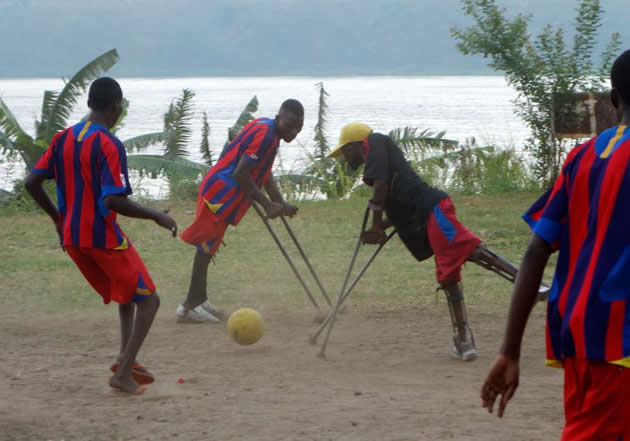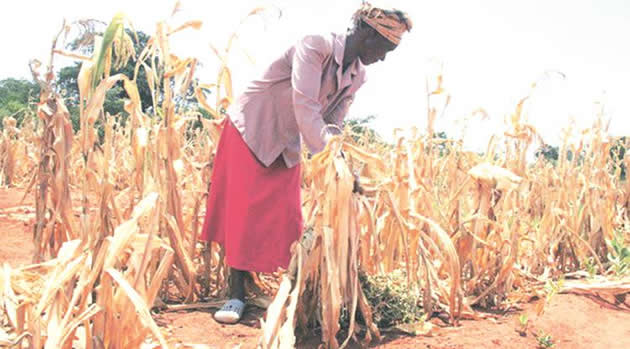Plight of the African disabled youth

 Tanzikwa Guranungo Correspondent
Tanzikwa Guranungo Correspondent
THE number of youth and children with disabilities in Zimbabwe like many other countries in Africa is unknown, since many of them are locked away and hidden from any government services. It is unknown how many have been abandoned, often in the care of their mothers, or violated of their basic
human rights and left to die in isolation, malnutrition or inadequate care. The lack of quantitative data, though, does not discount the voices of these youth who spoke for those who are not able to do so.
Persons with disabilities, especially those born into poverty, are confronted with discrimination at the very start of their lives. Common in rural areas of Africa, people believe that having a disability is a misfortune, a result of a curse or witchcraft. Many families cannot afford or access medical care and rely on traditional cures and herbs, which sometimes can worsen the condition.
Youth and children with disabilities are sometimes considered a burden and an expense to families. Fathers, who are the breadwinners, may abandon the family so as not to be associated with a child with a disability.
Most of the parents of these youth do not encourage them to go to school, some were and are too poor to afford the school fees or transport costs. Schools also do not have accessible materials or trained teachers. As the world shrinks into what is popularly referred to as the global village, it’s becoming increasingly important to establish just where persons with disabilities fit into all this. More critical, though, it is just how they can benefit from globalisation. Sadly, the answers are not clear for Africans with disabilities especially the youth.
The negative image of African youth with disabilities has its roots deep in African cultures. The negative attitudes, stereotypes and labels associated with disability can be situated in the African traditions and even Judo- Christian belief that disability is “blemish”.
Whenever it’s convenient, there is a tendency to justify discrimination and other forms of oppression using African tradition and culture this will be seen, for instance with regard to access to education.
Disabled youth, especially women with disabilities, are lowly ranked in educational opportunities. Statistics from UNESCO state that only estimates slightly above 6 percent of women have access to education and what kind of education and training opportunities are available to youth with disabilities.
Mainly secluded, under- funded and many times very poor quality education what of skills development? In developing countries especially Africa, few youths have the privilege of accessing quality and high level training opportunities. They are trained in less obscure, less regarded trades like shoe cobbling, manual tailoring and leather works, while non-disabled youths are training in computer engineering and nuclear physics.
Disabled youth also drop out of school and college because of hostile social environment, inaccessible infrastructure and facilities. What does all this have to do with persons with disabilities and especially the youths position vis-a-vis globalisation?
We must understand where youth with disabilities stand in their own society before we can fathom their condition in the wider global society. In other words, if the youth with disabilities have to contend with so many problems in their own country, they can only be expected to be worse out there where they have to cope with numerous factors.
According to Rehabilitation International (RI), Africa has over 80 million people with disabilities, about half of whom are youth. Globally the world has over 600 million people with disabilities, 40 percent of whom are youth.
Africans with disabilities, especially the youth, are generally handicapped when it comes to accessing the international market as business people. To engage in business at this level, one needs a significant outlay of money as capital.
However, the World Bank and UNDP studies are telling us that in every six absolutely poor people, one of them has one form of disability or the other; this will mean that disabled persons, more specifically the youths, have difficulties meeting basic needs let alone accumulating surplus funds that will be needed as capital.
Discriminatory customs and services also bar disabled youths, especially women, from inheriting property. Lack of property means disabled youth cannot use banks as alternatives.
For some decades now, the global labour market has been recruiting, not on the basis of citizenship but on qualifications, competence and suitability to the particular job. In this particular market, youth with disabilities are victims of disability-related discrimination but, more importantly, of what was referred earlier in terms of lack of quality and relevant education.
The Mwalimu Julius Nyerere Disability Scholarship
In recognising and empowering youth with disability in Africa, the African Union (AU) launched the Mwalimu Julius Nyerere African Union Scholarship for young students with disabilities in Africa.
The scholarships will be awarded to students who wish to pursue master’s degrees in the field of social sciences, natural sciences, engineering, mathematics, education sciences and sport sciences. The Mwalimu Julius Nyerere African Union Scholarship was launched in 2007 with the aim of contributing to the production and retention of high calibre African human capital for sustainable development of the continent in critical development areas, while promoting regional integration through intra-African mobility of students. The scholarship scheme is intended to enable young Africans to study in leading African universities with a binding agreement that beneficiaries will work in an African country for at least the duration of scholarship period after graduation.
In a statement from the Public Service Commission, the successful candidates will choose a university which has appropriate facilities for them.
“It is noted that the African Union Commission is offering young African students a Special Call Only for Applicants with Physical Disabilities” to study in African universities which have appropriate facilities and good services for the disabled students for the 2016 academic year,” said the statement from PSC.
Eligibility criteria
To be eligible for the Special Scholarship, a candidate must:
* Be a citizen of an African Union member state.
* Have physical disability.
* Be under the age of 35 years.
* Be a holder of a bachelor’s degree in the relevant field at the level of Upper Second Class Honours. The degree must be from a reputable university.
* Have demonstrated outstanding academic achievement as evidenced by academic transcripts and academic awards if any.
* Have proof of admission to undertake a full time master’s programme from a recognized university of an AU member state.
* Be willing to commit to work in an AU member state on completion of studies for at least three years.
However, no application will be considered without an admission letter from a university.
Those who wish to apply can access application forms online on www.au.int/nyerere <http://www.au.int/nyerere> more information is found on www.au.int <http://www.au.int>.
- The writer is Public Relations Manager for the Zimbabwe Youth Council









Comments